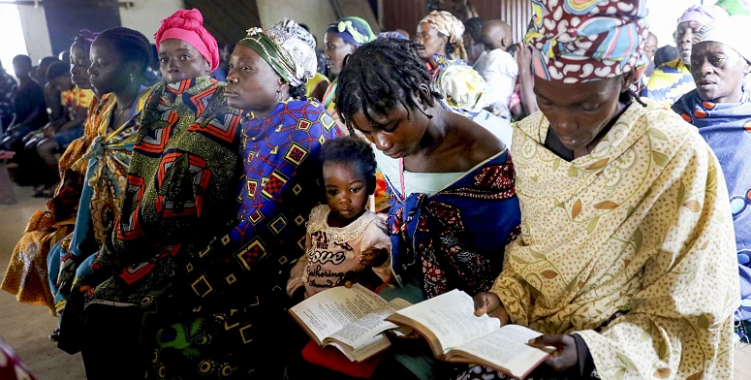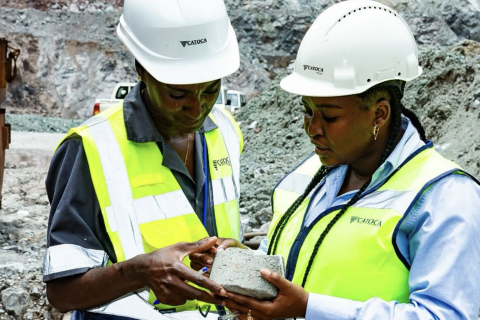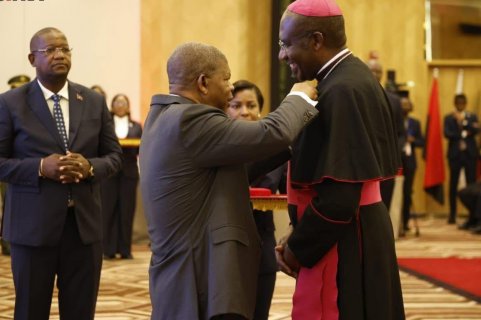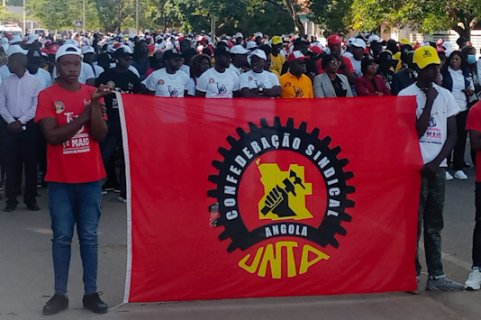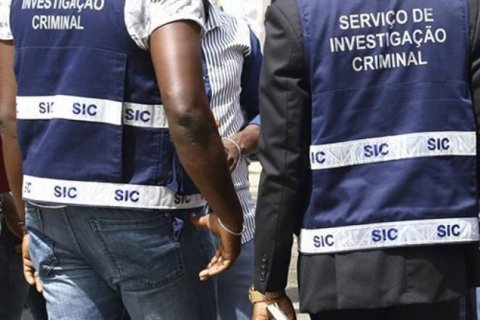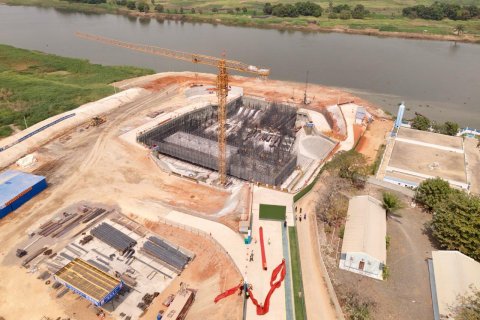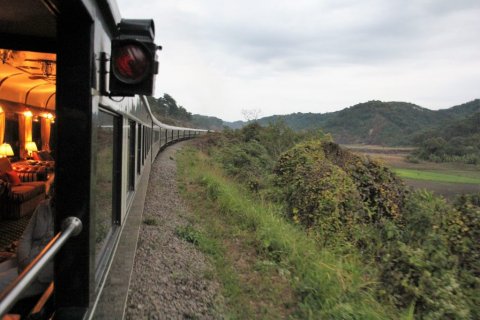The Portuguese presence in Gungo (municipality of Sumbe), made up of coffee and sisal farms in colonial times, is today a matter of faith, materialized in the church from the 1950s that still stands there, in an advanced state of degradation, and in the mission led by Father David Ferreira, from the diocese of Leiria-Fátima.
Seeming to touch the sky, at an altitude of more than a thousand meters, the granite masses and the effusive green of the vegetation make up a landscape that dazzles and hides the harshness of the lives of the 34 thousand souls that the Portuguese priest cares for, spread over 2,100 square kilometers, an area approximately that of the district of Viana do Castelo.
To get there you have to travel 130 kilometers from the capital of Cuanza Sul, Sumbe, on a tortuous and bumpy path that becomes a slippery track, as the rain turns the trail into a trail of red mud.
The last 50 kilometers after finishing the asphalt took the Lusa team five hours to complete an adventure only accessible to motorcycles and off-road vehicles.
The idea of the mission began to germinate in the 80s, but only when progress was made, in 2006, towards the twinning of the two dioceses - the Portuguese one in Leiria-Fátima and the Angolan one in Sumbe, - it began to have the permanent presence of a priest and the group of lay missionaries Ondjoyetu (Our house, in Umbundu) who try to help the population overcome the difficulties of everyday life.
Without a cell phone network, electricity or water supply, villagers are left to their own devices and have to travel long distances to call, go to school or buy essential goods.
"It may seem like an insignificant thing, but in this entire area this is the only place where photocopies are made", says the priest who arrived at Gungo for the first time in 2006, stayed there for five years, and returned to the mission in 2016.
With the help of the villagers, they have already built a mill to alleviate the pain of women who beat the corn in the traditional way until it turns into flour, they have started a truck to transport and bring products, they have created a solidarity canteen that sells basic necessities. at economic prices, they built a chapel, provide assistance in a small health post and are developing a gravity water supply system.
On a guided tour of Donga, one of the eleven centers and headquarters of the mission, David Ferreira displays some of the improvements, including a machine from Portugal that produces blocks of compressed earth (BTC), more resistant than adobe, and 'kits ' solar panels that allow the mission to be "a light in the darkness" of the mountains.
David Ferreira also hopes to be able to put the satellite telephone that was installed there in 2017 and served as a public payphone back into operation, so that it will no longer be necessary to travel 20 kilometers to receive news from the family or alert them to emergencies.
"Between 2.5 and 3 million kwanzas have been spent on calls from this location since 2017," David Ferreira told Lusa, highlighting the need and economic justification for communications at the location.
The priest also wants to restore the 1950s church dedicated to Nossa Senhora da Conceição, delicately placed on a rock and surrounded by the landscape in a state of grace.
In his "little white horse", the name of the jeep that has already covered 421 thousand kilometers in the service of the Mission of São José do Gungo, the tireless "all-terrain priest", who is a caretaker of souls, engineer, farmer, doctor and whatever else is necessary, goes, bite above bite below, trying to change lives in a "joint walk" with the population.
"These people feel very abandoned", he laments, pointing out the "clearly neglected access road" as one of the problems of that remote site, where 60 volunteers have already passed since 2016, when the Ondjoyetu group was created.
Ana Lúcia, a young 23-year-old nurse, is one of the most recent. She arrived in November and grew up listening to family stories "from the lands of Gungo" and that's why she chose Angola for her first volunteering experience abroad.
“The day I arrived at Donga I felt at home,” she says.
He welcomes the team from Lusa with a happy face and hands floured with bread with chorizo that he kneaded with the villagers and will serve for breakfast to the newly arrived from Luanda "mandachuva da Donga" who, impelled by the spirit of At the time, they carry donations and toys for children.
The nocturnal arrival of the "Fathers Santas" is celebrated with songs and dances and with soup from "grandfather Filipe", the Mission's cook for 30 years, who welcomes visitors before they prepare for a short rest.
In a few hours the bell will call everyone to morning prayers at 6am in an improvised "church", with an altar and a cross made of wooden boards.
Later, David Ferreira celebrates Sunday mass, which includes parts in Umbundu, traditional songs, the chatter and whining of children tied to their mothers' backs, the clucking of roosters, the aromas of the countryside and the grass.
Nurse Ana Lúcia describes the beauty of the place where she loses herself in contemplative moments as a "magnificent work". There he will spend six months "helping others", taking care of minor ailments and helping to pass on messages about basic health care, to "make people realize that soap and water are enough to wash a wound".
He says that the language barrier makes understanding a little difficult, but he tries to "get into their reality" to be able to help the communities and "apply the little bit" he brought from his academic training and hospital experience, curing colds, treating wounds and burns, problems of skin or the inevitable malaria.
While Ana Lúcia heads to the "office", "grandfather Filipe", aged 82, is standing around the pots.
He remembers when he started cooking, in 1954, when the Portuguese farms "were all sending coffee", he is proud when people praise his cooking and talks about the legacy he wants to leave, teaching others his knowledge.
"We are not saviors, we do our little bit", summarizes David Ferreira, adding that "in Angola there are many Gungos like this one".
"If we can help a little, that's where we should be missionaries", he highlights, rejoicing in the certainty of a mission "that is with the people and walks with the people".

